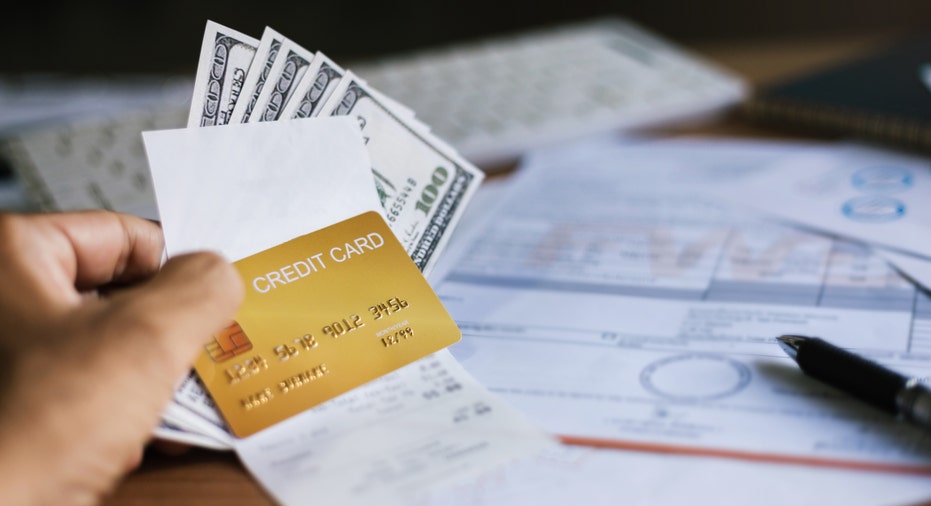This is the best way to pay off a large credit card bill

A personal loan can give you structure and possibly even a better interest rate. (iStock)
The year-end holiday season is a time for giving and spending time with loved ones, so it’s no surprise that it may also be a time for growing credit card bills. According to Deloitte, holiday shoppers plan to spend an average of $1,387 per household on holiday-related items and experiences alone.
But racking up a credit card balance can be a threat to your financial security, especially if you already carry a balance from month to month. As you consider ways to address your credit card debt, debt consolidation with a personal loan is likely the best way to pay off a large credit card bill.
How to pay off a large credit card bill
Personal loans are among the most versatile loans available — you can use them for just about anything. Among the most popular uses, though, is debt consolidation.
You can consolidate credit card debt by applying for a personal loan, receiving the funds, and then using them to pay off your credit card balance. This effectively transfers your debt from a credit card to an installment loan, which can make the repayment process easier and potentially even cheaper.
With personal loan rates being as low as they are today, you could save on interest if you use a personal loan for debt consolidation. If you would like to get a sense of what personalized loan options are available to you, you can visit Credible to compare rates and lenders.
Pros
There are some clear benefits to using a personal loan to consolidate credit card debt, but there are also some potential drawbacks that could make it less appealing.
Some of the benefits include:
- Personal loans have a set repayment schedule, so you know when you’ll be debt-free, and you won’t get caught up in the trap of making just the minimum payments and extending your debt sentence for longer.
- On average, personal loans charge lower interest rates than credit cards — 9.34% versus 16.43%, according to the Federal Reserve — so you could potentially save money.
- Paying off your credit card balances with a personal loan will immediately reduce your credit utilization rate, or the percentage of your available credit you’re using on your cards, which can improve your credit history and score.
As with any loan, if you’ve decided to consolidate your debt with a personal loan, it’s important to make sure you shop around for the best rates. Visiting Credible will give you access to some of the best rates available.
HOW MUCH DOES A PERSONAL LOAN AFFECT YOUR CREDIT SCORE?
Cons
On the flip side, there are some drawbacks to consider:
- There’s no guarantee you’ll get a lower interest rate on a personal loan, especially if your credit score is less than stellar.
- Your monthly payment will likely be higher than your minimum credit card payments, which could be unaffordable for some.
- Paying off your credit card could tempt you to rack up more credit card bills, exacerbating your debt problem.
It’s crucial that you carefully consider both the pros and cons of credit card consolidation with a personal loan to determine if it’s the right fit for you. Also, use a marketplace like Credible to explore personal loan options. Use an online personal loan calculator to find out how much it’ll cost you and whether you can save.
THE BIGGEST MISTAKE TO AVOID WHEN TAKING OUT A PERSONAL LOAN
What are my other options?
If your credit is in good shape, you might also want to consider using a balance transfer credit card to pay down your credit card debt.
Balance transfer credit cards typically offer an introductory 0% APR promotion (or close to it) for a set period. Some cards offer this promotional rate for as long as 18 months or more. During this time, you can focus on paying off your debt interest-free. With no interest charges in the way, you’ll not only save money but also eliminate your debt more quickly.
That said, there’s no guarantee you’ll get a big enough credit limit on the new card to pay off your other balances. Also, if you don’t commit to paying off the balance during the promotional period, the card’s regular APR will kick in, and you’ll be back to paying a higher rate on the remaining balance.
If you’re considering a balance transfer credit card, visit an online marketplace like Credible to find the right card for you.
HOW TO GET A BALANCE TRANSFER CARD
The bottom line
Dealing with credit card debt can be stressful, especially if money is tight. But using a personal loan or a balance transfer credit card for debt consolidation could potentially save you money and also help you pay down your debt more quickly.
Before you pull the trigger on one, though, take some time to research all of your options. Even among personal loans and balance transfer cards, there can be stark differences. For example, some personal loans charge an upfront origination fee, while others don’t. And while most balance transfer cards charge an upfront balance transfer fee between 3% and 5%, some don’t charge a fee at all. Compare personal loans and balance transfer cards to find the best fit for you.
Also, consider if using another product to get to a zero balance on your original card will cause you to add to your credit card bills. In this case, you’ll want to create a plan to avoid worsening the situation.